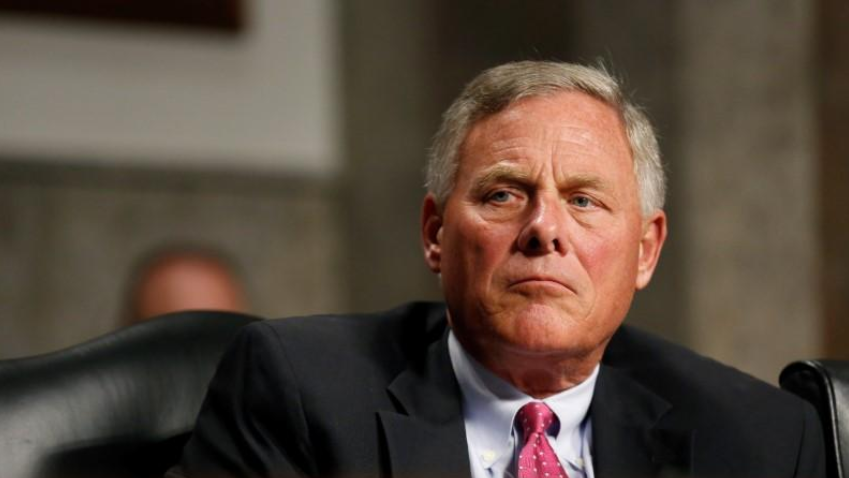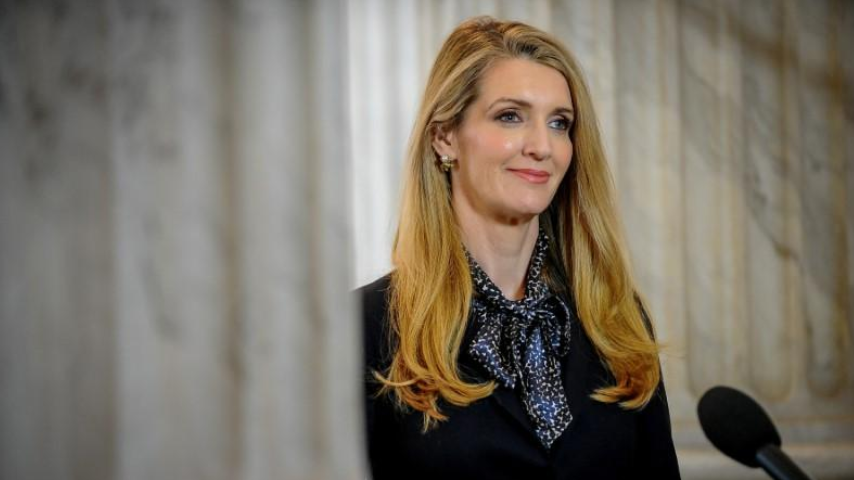
Senate Intelligence Committee Richard Burr listens as Twitter CEO Jack Dorsey and Facebook COO Sheryl Sandberg testify before a Senate Intelligence Committee hearing on foreign influence operations on social media platforms on Capitol Hill in Washington, U.S., September 5, 2018. /Reuters
Senate Intelligence Committee Richard Burr listens as Twitter CEO Jack Dorsey and Facebook COO Sheryl Sandberg testify before a Senate Intelligence Committee hearing on foreign influence operations on social media platforms on Capitol Hill in Washington, U.S., September 5, 2018. /Reuters
Three republicans, including Richard Burr and Democrat Dianne Feinstein, collectively dumped millions of U.S. dollars worth of stocks before the coronavirus-induced market meltdown and after closed-door briefings on the outbreak, records have revealed.
The U.S. now has more than 19,000 confirmed COVID-19 cases as infections soared, according to a Johns Hopkins University tabulation.
Republicans Richard Burr, Chairman of the U.S. Senate Intelligence Committee who receives almost daily briefings from the U.S. intelligence community on threats to the country, on February 13 sold up to 1.7 million U.S. dollars in stocks including in hotels, according to the ProPublica, a nonprofit media group, citing financial filings. This was when U.S. President Donald Trump repeatedly said the virus would not hit the country hard.
Also, on February 7, Burr wrote on the Fox News website that the U.S. government was "better prepared than ever" for the COVID-19 virus, assuring Americans that they were well-protected.
Two weeks after, on the same day Trump was telling the public that the 15 cases reported could be the U.S. peak, the North Carolina senator told a private gathering of wealthy donors that coronavirus was a threat like the 1918 Spanish flu, which killed tens of millions, according to National Public Radio (NPR).
NPR obtained a recording in which Burr told the donors that they should curtail their travel, 15 days before Trump shocked the country with a ban on arrivals from Europe.
"There's one thing that I can tell you about this: It is much more aggressive in its transmission than anything that we have seen in recent history," he said on the recording.
"It is probably more akin to the 1918 pandemic."
On February 26, the day before Burr met with donors, Trump assured the American public: "We're going very substantially down, not up" in the number of infected.
The next day, the U.S. leader declared: "It's going to disappear. One day, it's like a miracle, it will disappear."

Sen. Kelly Loeffler who sold off millions of dollars in stock after a coronavirus briefing, waiting for an interview to begin after attending a Senate Republican lunch meeting to wrap up work on coronavirus economic aid legislation to prevent the spread of coronavirus disease in Washington, U.S., March 20, 2020. /Reuters
Sen. Kelly Loeffler who sold off millions of dollars in stock after a coronavirus briefing, waiting for an interview to begin after attending a Senate Republican lunch meeting to wrap up work on coronavirus economic aid legislation to prevent the spread of coronavirus disease in Washington, U.S., March 20, 2020. /Reuters
Kelly Loeffler, whose husband is Jeffrey Sprecher, chairman of the New York Stock Exchange, sold up to 3.1 million U.S. dollars in stocks in 27 transactions from January 24 through mid-February, as first reported by The Daily Beast. The report said the sales began the day her health committee hosted a private coronavirus briefing for senators.
Democrat Dianne Feinstein, also sitting on the Intelligence Committee, sold up to six million U.S. dollars in stock including in Allogene Therapeutics, a California-based biotech company from January 31 to February 18, according to the New York Times.
James Inhofe, a Republican from Oklahoma, offloaded up to 400,000 U.S. dollars worth of stock in Paypal, Intuit, Dahaher, Apple and Brookfield Asset Management on January 27, according to a disclosure report also reported by the New York Times.
Critics on both ends of the political spectrum called on Burr and Loeffler to consider resigning or at least explain the sales.
In a statement Friday, Burr said he relied only on public news reports to guide his decision on the February 13 stock sales.
Loeffler said she was informed of the transactions three weeks after they occurred and that she was not involved in investment decisions for her portfolio.
"This is a ridiculous and baseless attack," she wrote on Twitter.
Both Feinstein and Inhofe said they were not involved in the transactions. Neither has faced the same scrutiny as Burr and Loeffler.
According to the Stop Trading on Congressional Knowledge Act, it is illegal for Congress members to trade based on non-public information gathered during their official duties.
Activist groups demanded federal officials and securities regulators investigate all four senators.
All four senators deny any impropriety and Trump said the senators should "possibly" be investigated.
(With input from Reuters and AFP)